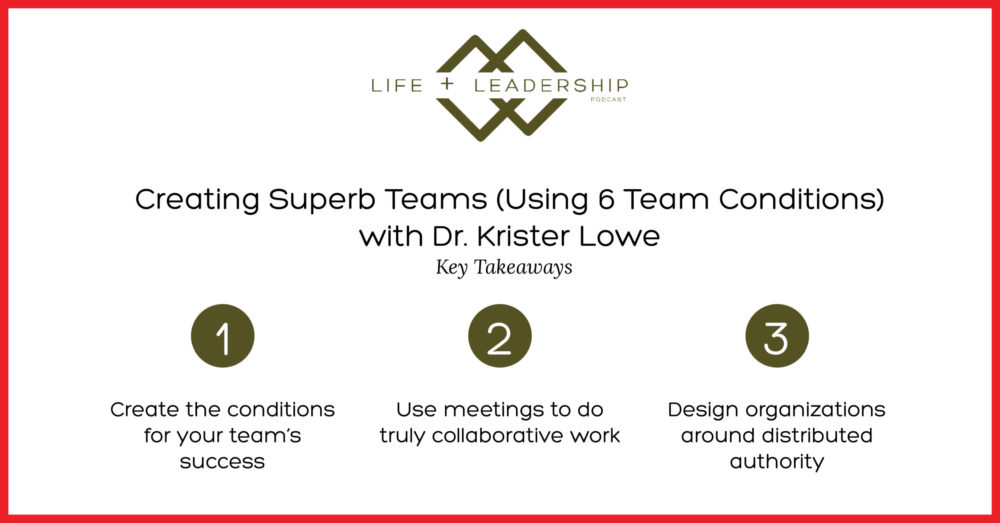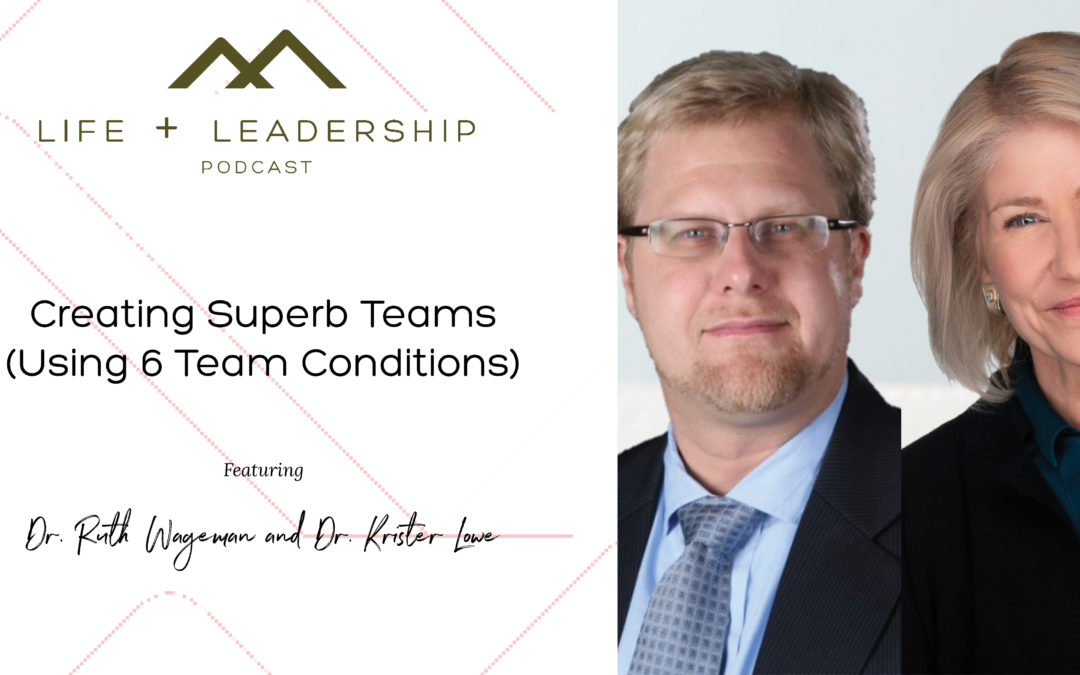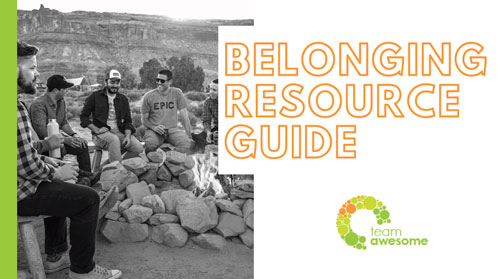Most of us involved in the practice of leading and coaching teams take a relational approach, focusing on group dynamics and resolving conflicts as they arise. But what if we’re treating symptoms without getting to the root cause? All the conflict resolution in the world won’t help if a team lacks the underlying conditions necessary to be successful. So, how do we create an environment that puts our teams on a positive trajectory from the start?
Today, we’re joined by Dr. Ruth Wageman and Dr. Krister Lowe, part of the core team of Team Diagnostics, LLC and co-hosts of the 6 Conditions Podcast. Ruth is one of the creators of the 6 Team Conditions Framework and Team Diagnostic Survey. She is one of the foremost scholars in the field of team performance, having led original research programs as a professor at Columbia, Dartmouth and Harvard Universities. She co-authored Senior Leadership Teams: What It Takes to Make Them Great. Krister is an organizational psychologist and team coach. He is the founder of the professional training platform The Team Coaching Zone. As a 20-year veteran of the team coaching space, he has developed an expertise in providing learning and development solutions for leading organizations around the globe.
Ruth and Krister begin by walking us through the 6 Team Conditions Framework, explaining what makes their design more effective than a relational approach and what teams can do to assess their standing in each of the 6 areas. Ruth and Krister discuss the most common dysfunctions they encounter among the wide range of teams they coach and share what they are ultimately trying to accomplish through this work in fostering true collaboration. Listen in to understand what trends Ruth and Krister notice in their work with teams, what they are doing to support team leaders in meeting these challenges, and how YOU might benefit from a deeper understanding of the 6 Team Conditions Framework.

Themes explored in this week’s episode:
- The 3 essentials and the 3 enablers that make up the 6 Team Conditions Framework
- Why conflict resolution fails when we don’t create the conditions for a team to be successful
- Ruth and Krister’s advice on defining a clear, specific purpose and making sure the whole team is on the same page
- The wide range of teams Ruth and Krister have worked with + the most common dysfunctions they encounter
- What issues SHOULD drive the agenda for senior leadership team meetings (and why it is NOT updates)
- What Ruth and Krister hope to accomplish through their work around team collaboration
- Redesigning organizations around collaboration and distributed authority
- How we can leverage the 60-30-10 Principle to meet the challenge of leading effective teams and bring more joy into the collaborative process
- The trends Ruth and Krister notice around team leaders and why the popular 1:1 management style doesn’t promote collaboration
- Who might benefit from pursuing certification in the 6 Team Conditions Framework
Resources from this episode:
- Learn more about the framework at 6 Team Conditions
- Follow Ruth and Krister’s work on LinkedIn
- Connect with Ruth on Instagram + Krister on LinkedIn or Twitter
- Read Senior Leadership Teams: What It Takes to Make Them Great and The Practitioner’s Handbook of Team Coaching
- Listen to The 6 Conditions Podcast or The Team Coaching Zone Podcast
- Get more information about The Nautilus Experience
- Explore the work of Richard Hackman
- Get certified in the Team Diagnostic Survey
- Enroll in the 6 Team Conditions Advanced or Master Certification Training
- Learn more about The Coaches Training Institute
- Revisit our discussion on community with Lola Wright on The Life & Leadership Podcast
We would love to hear from you! Have an idea for a podcast or a question you want us to address? Interested in additional support, resources and workshops? Here are all the ways you can interact with us!
- Tweet us! @tegantrovato and @TeamAwesomeMKE
- Email us: tegan@BrightArrowCoaching.com and Katie@TeamAwesomeCoaching.com
- Follow us on Facebook @BrightArrowCoaching and @TeamAwesomeCoaching
- Follow us on Instagram @TeganTrovato and @katie_rasoul
- Connect with us on LinkedIn: Tegan Trovato and Katie Rasoul
- Watch the podcast on the Life & Leadership YouTube Channel
- Download free tools and sign up for our newsletters, events and workshops by visiting: https://www.brightarrowcoaching.com/ and https://www.teamawesomecoaching.com/
Quotes from the episode:
Ruth—
“A real team is a bounded, stable unit that really needs to work together and exchange information and resources to accomplish something meaningful together.”
“What do we need a team for? What will be different in the world if the team is able to accomplish it? And then, what are the capabilities, the skills … that are needed to actually accomplish it?”
“What are the critical leadership functions that would be better served for this enterprise if multiple people were engaged in them together? And then, who can contribute to that?”
“The purpose has to drive the composition of the team.”
“Everybody wants to be a member of a leadership team, but nobody wants to go to the meetings.”
“Stop doing the updates in person with each other and start digging into the important strategic questions together.”
“I viscerally believe that all our biggest problems and all our highest aspirations are going to be achieved through brilliant collaboration.”
“The six conditions are built not just to drive performance, but to create teams in which people thrive.”
Krister—
“Help a team get its structure in place and create a virtuous ecosystem, and then you can coach the emergent dynamics.”
“Think about the next six months or year. What is it that your stakeholders, your enterprise most needs of you as a leadership team to uniquely step up to?”
“We don’t think of purpose as a one-time thing. We’re thinking about a much more dynamic view of purposes.”
“We have designed organizations, in the last hundred years, largely … around the individual.”
“Over the course of millions of years, we survived as a collaborative species, operating in small tribal groups where leadership was more distributed than centralized.”
“We tend to overattribute success in groups to leaders.”
“It’s a good intention to do one-on-one management, but it doesn’t create a team.”
“I think there’s something about the developmental journey of team leaders and that just leading through authority isn’t enough anymore.”



Recent Comments